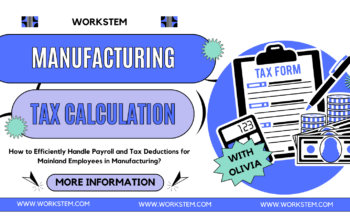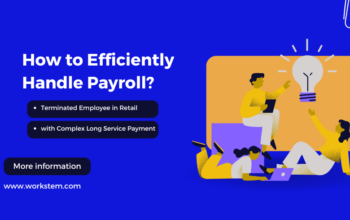“It’s hard to hire people, it’s harder to fire people.”
For any company’s HR, dismissing an employee is tough. In recent years, there have been many labor disputes around the keyword “dismissal”. It has always been a serious problem for any company to be in trouble with employee dismissal-related lawsuits that harm company reputation. What are the reasons for companies getting involved in these offenses?
In Hong Kong, the Employment Ordinance is used to safeguard employees’ rights from unreasonable dismissal. We should first understand the worst problems related to employee dismissal, and under what circumstances can employees claim compensation from the employer, involving Severance Payment, leave payment, and other benefits. If HR is not familiar with these regulations, the company is likely to suffer losses or even get involved in a litigation. Here are four things to keep in mind when dismissing an employee.
Employment contracts should always follow the Employment Ordinance
Whether hiring temporary, part-time, or full-time employees, HRs should have a comprehensive employment contract to protect the rights of the company and the employee. They should also comply with Hong Kong’s Employment Ordinance to avoid labor disputes.
One example is that after the employee’s contract termination is after the holiday, the employer shortens the notice period to allow the employee to enjoy an early holiday without the need of his/her compensation to the company. Does the employer really care about the employee for the greater good?
An employee employed under a continuous contract can be fired without length of notice within the first month of probation, according to Employment Ordinance, Chapter 57. However, after one month of the probationary period, or with no/ after probation period, a contract of employment may be terminated by the employer is required to give the other party not less than 7 days notice period or corresponding payment in lieu of notice.
What is payment in lieu of notice? It is a statement from Hong Kong and Taiwan that refers to the fact that the company does not notify the employees in advance when dismissing the employees, and instead pays the employees an equal amount of wage with the number of days in the notice period, usually 7 days or a month’s wage.
Especially for employees who have worked for a certain period of time, the payment in lieu of notice is not only the basic salary, but also includes commissions, allowances, attendance bonus, end of year payment or contract-end gratuity, etc. The way of terminating someone’s employment will affect the employees’ MPF scheme, long service payment, etc.that they can ultimately obtain. The wage standard and warning procedures depend on the company’s policies and employment contracts or employee handbooks.
Many companies will pay attention to the work ability and input level of employees because the actual work performance of them might be inconsistent with the interview. Some employees might also find that there is a discrepancy before/after work that cause their leave. The probation period, as an “observation period”, help employers and employees understand each other and identify problems early to avoid additional losses.
Can we dismiss employees without notice or payment in lieu of notice?
The normal procedure of dismissal:
- Employer can fire employee after the notice period.
- Make the payment in lieu of notice to employee before employer terminate the employment contract summarily.
An employer may summarily dismiss an employee without notice or payment in lieu of notice if the employee, in relation to his employment:
- wilfully disobeys a lawful and reasonable order;
- misconducts himself;
- is guilty of fraud or dishonesty; or
- is habitually neglectful in his duties.
An employee may terminate his employment contract without notice or payment in lieu of notice if:
- he reasonably fears physical danger by violence or disease;
- he is subjected to ill-treatment by the employer; or
- he has been employed for not less than five years and is certified by registered medical practitioner or a registered Chinese medicine practitioner as being permanently unfit for the type of work he is being engaged.
NOTE: Summary dismissal is a serious disciplinary action. It only applies to cases where an employee has committed very serious misconduct or fails to improve himself after the employer’s repeated warnings.
Example: Employee A was promoted to director after joining the company 8 years. The boss once said that “The pricing of the machine should be equal to a dinner for colleagues.” Then, A sold two old grinding machines that were no longer used at a low price of HK$4,000 during the time the boss was not in Hong Kong. After the boss knew what happened, A was immediately dismissed for a very serious misconduct. Finally, Asued the company and got HK$160,000 in compensation.
*The case is provided only for your information and does not constitute legal advice.
How to define a summary dismissal from an employer is based on a clear reason, rather than causing disputes and compensation as in the above cases? It is important to ask relevant experts or consultants for advice first to evaluate the employees’ work ability and performance for the company. Then, to decide whether to summarily dismiss the employees or not.
Severance payment and long service payment
Do you know when to provide Severance Payment and Long Service Payment to employees based on their different circumstances of the resignation?
According to Employment Ordinance, Chapter 11, an employee is eligible for severance payment when he is employed not less than 24 months under a continuous contract and meet the corresponding conditions.
An employee is eligible for long service payment when he is employed not less than 5 years under a continuous contract. Moreover, the condition is employee who is dismissed but he is not summarily dismissed due to his serious misconduct or his dismissal is not by reason of redundancy. In conclusion, the way employees are dismissed affects the long service payment that employees ultimately receive.
To receive timely and reasonable severance payment or long service payment is the employee’s rights and interests. The entitlements are calculated by the employee’s reckonable years of service and wages. An employer should give severance payment to employee within three months or long service payment within seven days after the date of termination of employment contract. An employer who without reasonable excuse fails to pay severance payment/ long service payment to an employee is liable to prosecution and, upon conviction, to a fine of HK$50,000/ HK$350,000 and to imprisonment for three years.
The following formula applies to the calculation of both severance payment and long service payment:
| Monthly-paid employee |
(last month wages* 2/3) *reckonable years of service |
| Daily-rated/piece-rated employee | (any 18 days’ wages chosen by the employee out of his last 30 normal working days)*reckonable years of service |
Service of an incomplete year should be calculated on a pro rata basis. An employee may also elect to use his average wages in the 12 months immediately preceding the termination of an employment contract for the calculation.
The sum should not exceed 2/3 of HK$22,500 (i.e. HK$15,000).
Termination payments
When the employer terminates the employment contract or the contract expires, the payments that an employer pays to employees depend on a number of factors such as the length of service, the terms of an employment contract and the reason for termination of a contract. Termination payments usually include:
- outstanding wages;
- payment in lieu of notice, if any;
- payment in lieu of any untaken annual leave, and any pro rata annual leave pay for the current leave year;
- any outstanding sum of end of year payment, and pro rata end of year payment for the current payment period;
- where appropriate, long service payment or severance payment;
- other payments under the employment contract, such as gratuity, provident fund, etc.
If an employer fails to pay termination payments, except for severance payment, to the employee within seven days after the date of termination or expiry of contract, he is required to pay interest to the employee. An employer who willfully and without reasonable excuse fails to pay termination payments when they become due is liable to prosecution and, upon conviction, to a fine of HK$350,000 and to imprisonment for three years.
How to handle these works efficiently?
After reading these terms, you should realize how much HR’s work is. Dealing with all kinds of daily administrative work of the company, and finding out information and calculating all the payments that employee leaves the job is a heavy burden to HRs. Moreover, HRs must be proficient in the Employment Ordinance to avoid the violation of the law. Why not ask the experts or consultants for advice, or outsource these administrative tasks of human resources management to a professional company to greatly reduce the spending in HR administration?
Great recommendation! Workstem improves payroll efficiency.
Workstem one-stop human resources management system Support automatic obtain the number of remaining annual leave days when an employee resigns, customize the calculation method of annual leave pay, ADW calculation, settlement time, etc., and use the powerful AI calculation engine to calculate according to the annual leave pay calculation formula, and automatically compare salary data , ensure that the calculation of annual leave pay complies with company policies and standards, and pays out efficiently.
In addition to calculating annual leave pay, the Workstem system can also provides a full range of solutions to help your business management of other HR processes, such as Rostering、Attendance、Leave, MPF and tax return management, etc., help you can truly realize digital transformation and improve management efficiency and employee satisfaction.
Read More: Traditional HRM Software Vs Cloud HRM Software, Which One to Choose?







